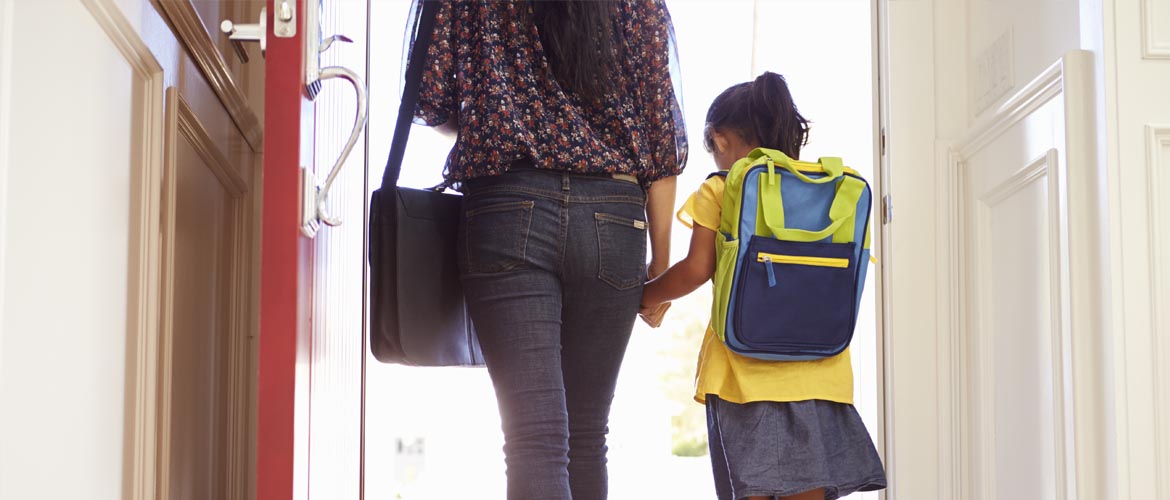August 9, 2024
But once kids head back to class, they’ll be near other students and start touching shared surfaces like the lunch table and classroom supplies. This means coughs, colds, fevers, and runny noses are sure to increase. Want to prevent your child from getting sick this fall? Here’s your study guide to keep your child healthy this school year.
Pre-Requisite: Why Does My Child Get Sick?
First things first − when it comes to studying for the big test, let’s understand why illness happens and how it spreads before we jump to what parents can do to prevent it. Children are more susceptible to certain illnesses and infections for many reasons, one of them being their not-fully developed immune system. Did you know? A child’s immune system isn’t fully developed until they’re about seven to eight years old.
Coupled with frequent exposure to germs and sometimes inconsistent hygiene practices, children are often at higher risk of getting sick. As a kid, they aren’t aware that coughing into their hands and then touching a door knob or putting their lips on a water fountain at school could potentially spread germs and illnesses to classmates. Because children get sick more often due to their weaker immune system, teaching your children how to prevent germs from spreading – especially at school, is more important than ever.
Study Tip #1: Good Hygiene, It’s as Easy as ABC
The best way to ensure a healthy school year is to teach your kids the importance of good hygiene, and that includes proper handwashing. Teach your child the right way to wash their hands, which is one of the most important ways we can avoid spreading germs to others:
- Wet your hands with clean water and apply soap.
- Lather your hands by rubbing them together with the soap. Don’t forget the backs of your hands, between your fingers, and under your nails.
- Scrub your hands for at least 20 seconds – that’s about the time it takes to sing the “alphabet” song.
- Rinse away the soap from your hands under clean water.
- Thoroughly dry your hands either with a clean napkin or an air dryer.
What should you do if you don’t have soap and water but need to clean your hands? We recommend an alcohol-based hand sanitizer. While these will reduce the number of germs on your hands, hand sanitizer does not get rid of all types of germs, so teach your child to properly wash their hands as soon as they can. When you shop for back-to-school supplies, remember to buy some travel-sized hand sanitizers that can be clipped onto a backpack or lunchbox.
Washing your hands frequently can help stop germs from spreading, and it’s especially important before eating food, after you use the restroom, and after blowing your nose, coughing, and sneezing.
And if you child has to cough or sneeze, remind them to cover their mouth or nose with a tissue and promptly dispose of the tissue in a waste basket. If they don’t have a tissue on hand, teach them to cough or sneeze into their elbow.
Are you a teacher and want to educate your students about basic healthcare treatments, including hand washing? MedExpress offers free community outreach programs that educate children about the importance of healthy habits. Visit our Community Connections page for more information.
Study Tip #2: Your Immune System Needs Extra Credit
Bed Times
With a child’s immune system not being fully developed yet, it’s important for parents to take steps to strengthen it. Ensuring your child is getting plenty of sleep is a good place to start. According to the CDC, school-aged children should get 9-12 hours of sleep per night.1 Getting adequate sleep helps the immune system properly fight off infection. And after a summer of late bedtimes, parents should start enforcing school-day bedtimes a few weeks before school starts. Try easing into going to bed earlier by adjusting bed times and when you wake up by 15 minutes each day.
Diet
Your child’s diet also plays a vital role in their immune system. Healthy meals full of fruits and vegetables help to boost your child’s ability to fight off illness. Look for foods rich in vitamin C like broccoli, strawberries, and oranges.
Flu Vaccine
Another way to make sure they’re spending more time in the classroom than sick at home on the couch is the flu vaccine. The CDC states that the flu vaccine offers the best defense against getting the flu and then passing it along to others. And since flu strains can change each year, children must get revaccinated each year as flu shots change.
It’s best to get vaccinated early, which ensures you’re prepared before flu season strikes – which can sometimes start as early as October. It takes about two weeks for the antibodies to fully develop after receiving the vaccine, so getting the vaccine early will give your body time to become fully immune. Every year in early autumn, our MedExpress centers stock that season’s flu vaccine so you can get your flu shot as soon as possible.*
Even with all the prevention tips and tricks, your child still may get sick. And how do you know if it’s a case of the sniffles or something worse? The only way to know for sure is to visit a healthcare professional.
Study Tip #3: Practice Makes Perfect, Especially With Healthy Routines
Mornings can be pretty chaotic with everyone getting ready at the same time. By having a routine in place, it’s easier for the whole family to follow healthy habits. Start by prepping the night before. Get your child involved in picking out their outfit and setting it aside in their room. Once you clear off the table from dinner, have your children help in setting the table for breakfast and packing their lunchbox for the next school day. Have backpacks, lunchboxes, jackets, and shoes ready to go and in a central location so they can easily grab and go.
Last but not least, don’t forget to prepare your own items. Running around looking for your keys, wallet, or cell phone can make you late for the car pool, too. Designate a tray near the backpacks for your belongings so you can quickly grab them as you head out the door. Do you need a cup of coffee to start your day? Invest in a programmable coffee maker and fill it the night before. As an added bonus, you’ll wake up to the smell of fresh coffee each morning. Try to make it a habit to fill up your gas tank in the evening to make for a smoother start to your day. And for days where you’re rushing out the door and forget your wallet and your coffee, keep a $5 bill in your glove compartment – you’ll likely need that fancy latte. Overall, being a prepared parent can help you stick to your morning routine, follow healthy habits, and keep your family on track this school year.
Originally published July 2023. Updated August 2024.
References:
1 CDC. Sleep and Health. Last Updated July 18, 2023. Accessed August 9, 2024.
*Ages 4 and older. While supplies last. Some restrictions apply.



